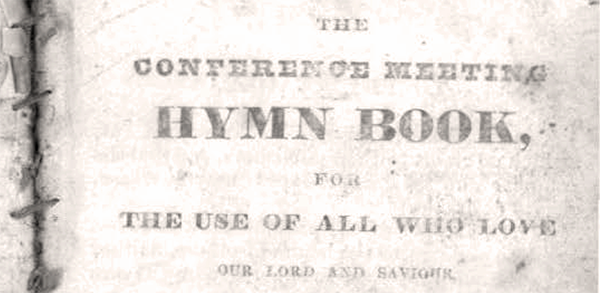Music always has been a part of Free Will Baptist worship, but the present denominational hymn book is far different from the first one published in 1823. That hymnal was compiled by John Buzzell, a publisher among the Northern Free Will Baptists, and contained some original hymns written largely by the editor or by Benjamin Randall, the founder of the New England segment of the denomination. Others were written by internationally known hymnodists such as Watts, Doddridge, and Toplady.
At that time, musical instruments were not used in the church. In fact, they were not allowed in the church. Hymns were “lined out”—that is, the worship leader chose a tune for the hymn and then announced or sang each line for the congregation. The worshippers then repeated what they had heard. Hymn books offered only lyrics for each hymn. Other denominations must have been using instrumental music because David Marks, a popular Free Will Baptist musician, refused to use such “innovations” in his music.
In 1828, Marks published The Conference Meeting Hymnbook for the Use of All Who Love Our Lord and Savior Jesus Christ (pictured below). It contained the lyrics for 93 hymns. In 1832, he added Hymns for Christian Melody, a text which included no notes but did suggest a tune for each hymn. This hymn book included 1,000 hymns and anthems.
In the South, in 1832, Jesse Heath and Elias Hutchins compiled a hymnal entitled Psalms, Hymns and Spiritual Songs, Selected for the United Church of Christ, Commonly Called Free Will Baptists, in North Carolina; and for Saints in all Denominations. By this time, most hymnals were divided by topic and, in this case, the title identified the areas of interest right up front. Many hymns emphasized praise and salvation.
Numbers of other hymnals were published by the denomination, but it was 1868 before the New England group introduced a text that included accompanying notes. Free Will Baptists in the South would have to wait until 1901 for such luxury. In that year, D.E. Dortch published a collection of traditional Free Will Baptist hymns that included shaped notes. Music had, by this time, attained an honored role in denominational worship.
About the Writer: William F. Davidson was professor of Church History at Columbia International University, in Columbia, South Carolina. Dr. Davidson is an alumnus of Peabody College, Welch College, Columbia Bible College, Northern Baptist Seminary, and New Orleans Baptist Seminary. The Ayden, North Carolina, native also served as pastor of Free Will Baptist churches in Kentucky and Virginia.


